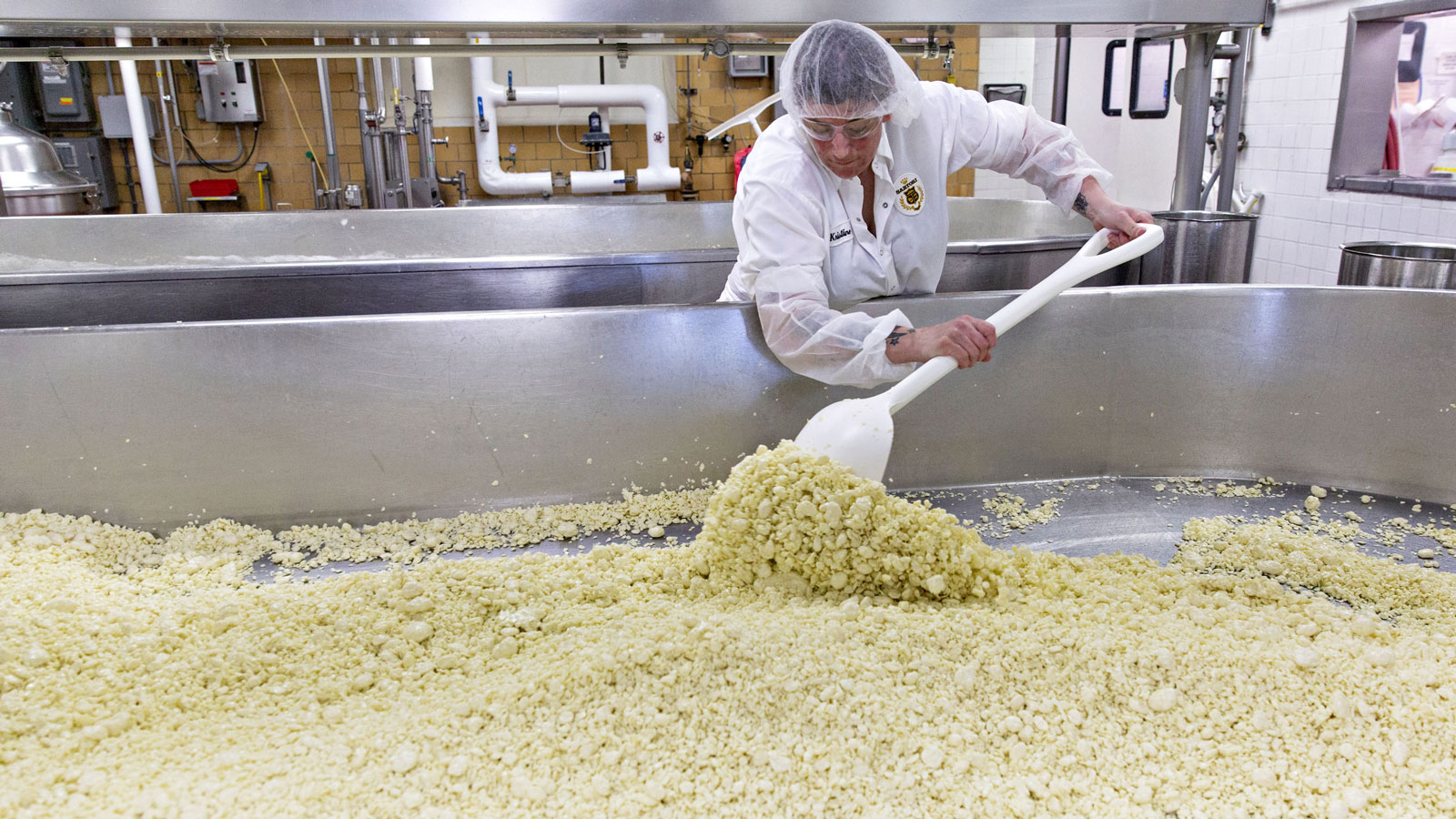Wisconsin Uses Cheese Waste To Clear Its Snowy Roads
Why cover the road in rock salt when you can use delicious cheese brine to melt stubborn snow and ice?
Roads dusted with the white chalky substance of rock salt is a familiar sight this time of year. The salt works to help clear snowy roads and prevent wet roads from freezing over in the colder weather and winds, following winter storms, and keeps America on the move. But, in Wisconsin, it's not only rock salt that's being sprinkled on the roads, its waste from the state's burgeoning cheese industry as well.
Rock salt is typically sprayed across America's snow-covered roads because it works to lower the freezing point of water. Regular water freezes at 32°F (0°C) while salty water can freeze below 28°F (-2°C) and rock salt can remain an effective way of keeping roads somewhat free of snow and ice, all the way down to 15 degrees (-9°C).
But instead of shipping great mounds of rock salt across the state, Wisconsin looked closer to home for a means of clearing its roads. The state, affectionately known as America's dairyland, looked to its cheesemakers for help.

If it were a country, Wisconsin would be ranked fourth in the world for cheese production, just behind Germany. Mixing up everything from vibrant Colby cheeses to hard cheeses like Cupola, the state made a name for itself off its dairy industry.
And, where there's cheese, there's always salt, as it's one of just three ingredients needed to make cheese alongside milk and rennet. It makes sense, then, that dairy experts across the state might be able to help with uncovering a new way to keep Wisconsin's roads more free of ice in the winter.
According to NPR, Wisconsin has been experimenting with using waste from cheese production for its roads for some time. Liquid cheese brine, used to salt wheels of cheese, is mixed with rock salt once it's done with at the dairy plant.
Then, it is sprayed onto roads across Polk County in Wisconsin. NPR reports:
"The rural county uses the cheese brine in 'pre-wetting for snow and ice control,' as Emil 'Moe' Norby, technical support manager for the Polk County Highway Department, tells us. And he says the brine has a definite effect when it's mixed with regular road salt.
"'It seems to make it go down to a lower freeze point,' Norby says of the salt and cheese brine mixture, citing 'better results at colder temperatures'."

As well as making use of a waste product, there are practical benefits of using cheese brine to clear roads. According to NPR, the solution helps salt stick to the road, rather than bouncing off into the hard shoulder. It has also been found to speed up the melting of ice and snow that falls onto roads, as well as saving the state thousands of dollars in rock salt orders every year.
So, we should all go out and eat more cheese so that Wisconsin has enough brine to keep its roads clear this winter. The more you know.
